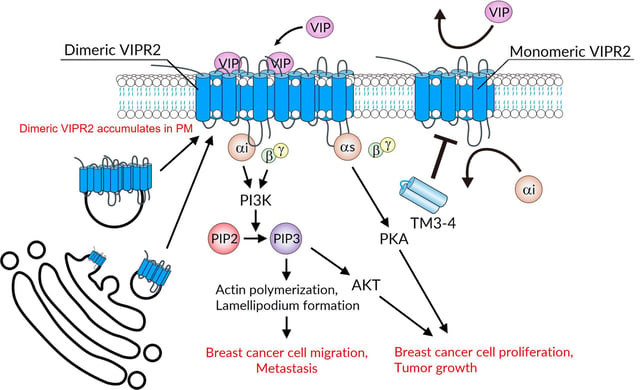Overview
- The team showed that overexpressed VIPR2 receptors form homodimers in breast cancer cells, enhancing binding to VIP and Gαi proteins and driving tumor growth and metastasis.
- Dimerization occurs via transmembrane domains TM3 and TM4, which create the interface critical for receptor pairing and downstream signaling.
- Cell and mouse experiments demonstrated that expression of TM3-4 peptides induces VIPR2 de-dimerization, leading to reduced tumor proliferation and lymph-node metastasis.
- De-dimerized VIPR2 exhibits lower affinity for signaling partners and fails to activate pathways responsible for cancer cell proliferation and migration.
- Backed by Japan’s major research funding agencies, the researchers plan to evaluate the anticancer efficacy of purified TM3-4 peptides in animal models to develop targeted breast cancer therapies.
